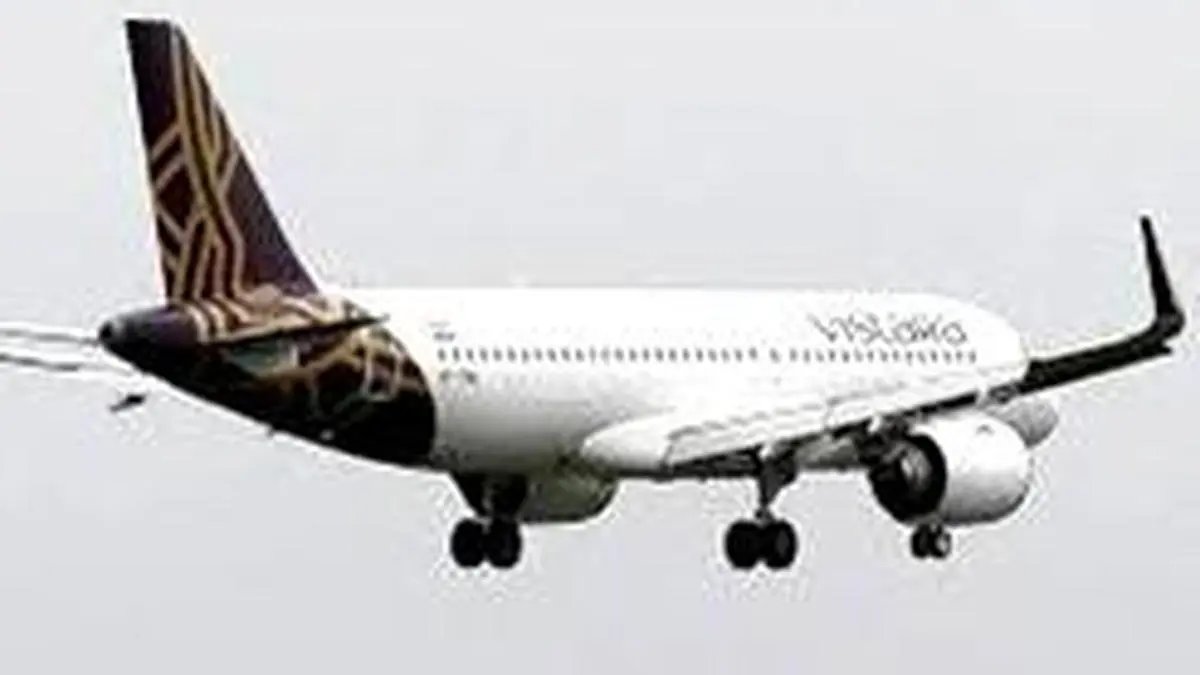Air India steps up customer focus, plans new culture as Vistara merger completes a year

Vistara merged with Air India last November bringing greater scale and a uniform service experience. A year on Air India management is laying higher emphasis on customer service and preparing a new organisational culture.
These changes are being put in place as it negotiates the challenges caused by the Ahmedabad air crash and the closure of Pakistan’s airspace that have resulted in higher costs and reduction in flights.
The merger of the two airlines was completed on November 12 and followed integration of two other group airlines – AIX Connect (formerly AirAsia India) with Air India Express on October 1.
Last November Air India was operating 5,600 weekly flights connecting 90 domestic and international destinations with 208 aircraft. The number of weekly flights operated by Air India has now reduced 16 per cent to 4,700 per week while destinations and fleet size have reduced to 82 and 187, respectively. This is because of ongoing retrofit of aircraft, lease returns and transfer of certain routes to Air India Express.
Weak premium economy sales remain a challenge, with the airline regularly upgrading economy class passengers to premium economy cabins.
“Premium economy sales have not picked up despite competitive pricing. Economy class cabins are often overbooked and passengers are upgraded during airport check-in but with this premium economy risks losing its premiumness,” said an airline source.
In a statement, Air India said the number of aircraft with premium economy seats has tripled from 25 to 108 now (including Vistara aircraft). Load factor and revenue from the cabin have increased.
“Historically, Air India did not offer premium economy, and therefore, the product’s awareness in the market has been an area of work. Additionally, premium economy is not yet widely included in corporate and government travel policies, limiting uptake from business travellers. We are actively engaging with organisations and industry bodies to advocate for its inclusion and are seeing encouraging early progress,” the airline said.
New service protocols, new bar menu
Yet, there are several positives too. On ground and in-flight services have improved. Crew engagement with customers has been standardised with uniform announcements and briefings. Brand visibility has been enhanced and the airline is now more prompt in informing its customers about service disruptions.
“There is a lot more attention to detail now in in-flight service but this will obviously work wonders if the hard product is up to date,” a crew member said pointing to issues like non-functional inflight entertainment systems on widebody planes.
A new bar menu is being planned that includes different drinks for different destinations. Wines and drinks in the first class to be offered in the first class too will not be the same that are offered in business class, it is learnt.
“Today, with several initiatives rolled out as part of the Air India transformation program, NPS of the combined entity in the domestic market is at an all time high, surpassing that achieved by Vistara,” Air India said.
Common culture
Air India said it is in the process of co-creating the culture of Air India, which is an amalgamation of erstwhile Air India employees, those coming in after merger as well as thousands who joined the company from across organisations post privatisation. “The exercise of co-creating the culture is currently underway and the all-employee survey was one of the ways in which employees engaged in the process,” it said.
A common seniority list has already been prepared for pilots and the same is in the works for cabin crew. While some crew have expressed concern about the process, there are complaints regarding rostering too particularly about clubbing weekly offs with leaves.
Some subtle changes have already happened. “Vistara being a younger organisation was far more agile and with a collaborative approach among its various departments. Its functioning style was less hierarchical with seniors being referred to with their first names rather than as ‘Sir’ or ‘Ma’am’ which was the prevalent way to address bosses in Air India. Air India staff have now adopted Vistara’s practice of addressing seniors with first names,” an executive remarked.
Published on November 9, 2025


